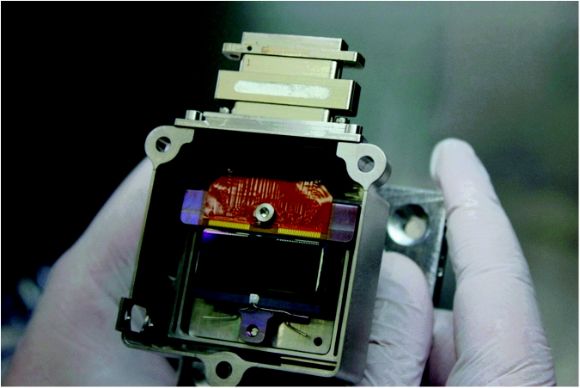The UK government has announced a £10 million investment for eight companies to help bring their medical technology products to market.
The government said the move could save “countless lives” and change the way medical conditions are treated in the UK.
The technology under development could potentially destroy liver cancer tumours, detect Alzheimer’s and spot those at risk of stroke.
The funding is part of a new programme called The Innovative Devices Access Pathway (IDAP), which aims to bring the latest technologies to the NHS. Currently in the pilot stage, the funding will be used to test the new technologies for use on a large scale as quickly as possible.
One company receiving funding is Lenus Health, which is using AI to predict patients at risk of hospitalisation for chronic obstructive pulmonary disease, which causes damage to airways and results in breathing difficulties. The company uses wearable devices, sensors and apps to collect data and predict which patients are at greatest risk.
“These cutting-edge technologies could help thousands of patients with a range of conditions, including cancer, stroke, and Alzheimer’s, while easing pressure on our hospitals and reducing healthcare inequalities,” said health minister Andrew Stephenson. “Our investment in these pioneering companies is part of our long-term plan for a faster, simpler and fairer health care system, and demonstrates our clear commitment to ensuring the UK is the most innovative economy in the world.”
Latest News
-
Tesco announces 10-week trial of new crime reporting platform
-
Jeff Bezos’ Blue Origin announces space-based internet network to rival Musk’s Starlink
-
Starling and Lloyds Bank IT leaders named AI champions by UK government
-
Canadian court overturns government order to shut down TikTok operations
-
UK ministers to visit Australia as government explores under-16s social media ban
-
UK government announces 3-year drone degree in push to modernise army
The future-ready CFO: Driving strategic growth and innovation
This National Technology News webinar sponsored by Sage will explore how CFOs can leverage their unique blend of financial acumen, technological savvy, and strategic mindset to foster cross-functional collaboration and shape overall company direction. Attendees will gain insights into breaking down operational silos, aligning goals across departments like IT, operations, HR, and marketing, and utilising technology to enable real-time data sharing and visibility.
The corporate roadmap to payment excellence: Keeping pace with emerging trends to maximise growth opportunities
In today's rapidly evolving finance and accounting landscape, one of the biggest challenges organisations face is attracting and retaining top talent. As automation and AI revolutionise the profession, finance teams require new skillsets centred on analysis, collaboration, and strategic thinking to drive sustainable competitive advantage.
© 2019 Perspective Publishing Privacy & Cookies









Recent Stories